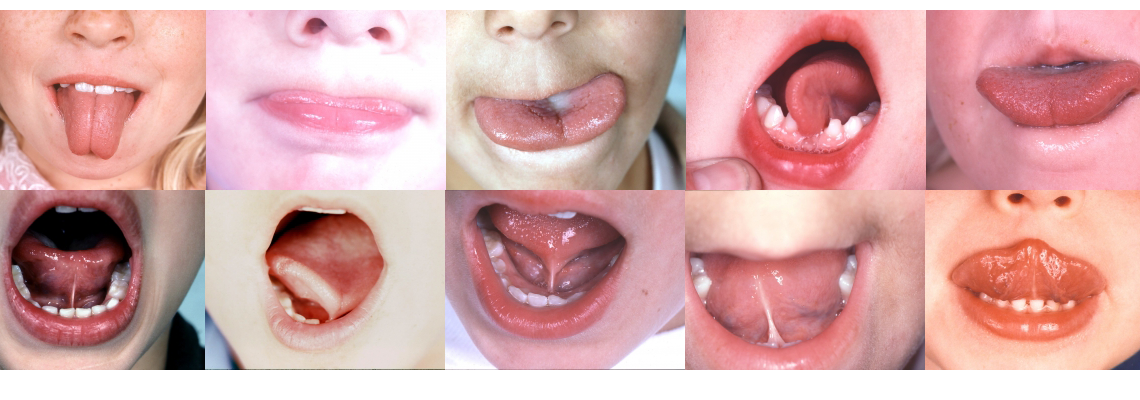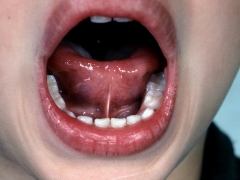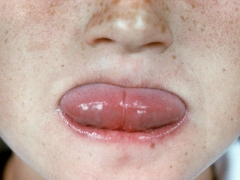The purpose of this web site is to inform those with tongue tie, as well as their families and professional helpers, about the condition and how best to deal with it. This little-understood condition affects thousands of children and adults.
Many suffer in silence the multiple difficulties which derive from having a tongue which cannot move freely. There are infants who cannot suck, toddlers who cannot chew, children who cannot lick ice creams, and children and adults who are disadvantaged by their poor speech.
The premise that tongue tie is not ‘per se' a medical problem or a cause of speech difficulty has been challenged. It is no longer generally accepted that only those ties severe enough to cause undernourishment, or to prevent pronunciation of tongue tip sounds, are significant.
What is Tongue Tie?
Tongue Tie – also known as ‘Ankyloglossia’ or ‘anchored tongue’ – is a common but often overlooked condition. It is seen at birth and causes a wide range of difficulties that affect the sufferer in different ways. Diagnosis and assessment are essential before taking any remedial action. In the past, there was little besides observation or anecdotal evidence to guide us towards a decision about whether to intervene. Now, both diagnosis and assessment of a tongue tie can be made by informed and qualified professionals. Read more...
Consequences of Untreated Tongue Tie
The consequences of untreated tongue tie are wide ranging and can affect structure and appearance of the face and teeth, as well as oral function. Thus, breastfeeding, eating, digestion, teeth, speech, kissing and social skills can be adversely affected. Some consequences, such as breastfeeding difficulties, can be experienced early; others, such as speaking and kissing, only become apparent in later life. Read more...
Breastfeeding
Breastfeeding is one of the first independent pleasurable activities that a new baby experiences. It is widely recognised to be important both for the baby's health and nourishment, and for bonding to take place between mother and baby. A baby with a tongue tie often cannot make the necessary movements that allow feeding to be satisfying for both mother and baby; instead, the experience becomes one of frustration for the baby, and pain, guilt and failure for the mother. Read more...
Surgery
There are several options available when a tongue tie has been assessed and found to be restricting movement (i.e. when the frenum - the string that connects the tongue to the floor of the mouth - is recognised to be abnormal). Such a situation requires surgical correction by an appropriate professional. The age at which this procedure can be performed can range from 7 days to 70 years old. Read more...






